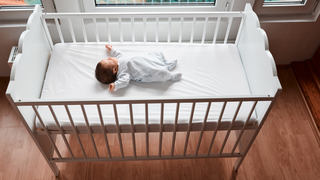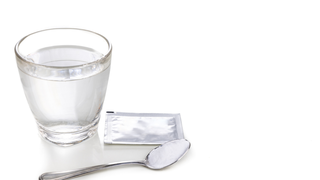You may wonder whether it means you are facing health problems. Spotting during breastfeeding can happen for many reasons, most of which are harmless. You can stay calm and take care of your health better after understanding the reasons.
What Is Spotting During Breastfeeding?
Spotting is a very light bleeding that is less than a regular period. It can be red, pink or brown, and it also comes and goes, unlike a period. The quantity is not enough to soak a pad or tampon. It can appear weeks or months after childbirth or may occur anytime while you breastfeed.You may notice spotting as a few drops or light stains on your underwear rather than a continuous flow. You may experience it for just a few hours or over several days, after which it stops. It is a part of the body recovery process, as the hormones return to normal levels.
Why Does Spotting Happen While Breastfeeding?
Spotting during breastfeeding can occur for the following reasons.Hormonal Changes
Your body produces prolactin during breastfeeding to help your body make milk. High prolactin levels may suppress the ovulation process due to which there is an imbalance between oestrogen and progesterone. It may lead to the irregular shedding of your uterine lining, leading to spotting.In this article:
Return of Your Period
Spotting can be a sign of your period returning after the delivery, despite not experiencing a full menstrual cycle yet. It can happen whether you choose to exclusively breastfeed your baby or introduce solids to them, which reduces the frequency of feeds.Breastfeeding-Induced Uterine Contractions
Your body releases oxytocin to help your uterus contract when you breastfeed. The contractions can lead to the release of a small amount of blood in the first few months postpartum.Vaginal or Cervical Irritation
Spotting can also happen due to the mild irritation from the breastfeeding positions, sexual activity or cervical changes during recovery.When Is Spotting Normal?
Spotting while breastfeeding is light and lasts only a few days. You may notice it under the following circumstances.- Between periods
- After nursing sessions in the first 6 months postpartum
- During ovulation
When Should You See a Doctor?
Visit your doctor if you experience the following signs along with spotting.- Heavy bleeding that soaks pads quickly
- Clots larger than a quarter
- Severe abdominal or pelvic pain
- Foul-smelling discharge
- Fever or feeling unwell
Practical Tips to Manage Spotting
You can manage the spotting even if you cannot control it.- Keep a diary of when and how much you bleed.
- Use pads while breastfeeding, as they reduce the risk of infections during the postpartum period.
- You cannot ignore rest, as your body undergoes the healing process.
- Good nutrition and sufficient water are the key aspects to a faster recovery.
- Talk about your experience with your partner to reduce stress and gain emotional support.
Emotional and Social Aspects
Spotting can make you worry, but it is how your body adjusts after childbirth. You may wonder about your fertility, health and milk supply. Talk about it with your partner, friends or family to ease your anxiety. You can continue to breastfeed comfortably when you feel emotionally supported and cared for.What To Do Next: A Quick Checklist
- Monitor your spotting and notice abnormal patterns.
- Observe if the spotting occurs during breastfeeding sessions.
- Attend postpartum check-ups and mention any irregular bleeding.
- Reach out to your doctor if spotting becomes heavy or painful.
- Support your emotional health during the postpartum period by talking about your feelings with your spouse or family.
Whether you’re pregnant, a new mom, or navigating postpartum, you don’t have to do it alone. Join our support group to connect, share, and support one another.
FAQs on Why Spotting Can Occur With Breastfeeding?
- Can I continue breastfeeding if I’m spotting?
Spotting during breastfeeding will not affect your milk supply or your health in any way. - How long after childbirth can spotting occur?
Spotting can happen in the first few weeks to several months postpartum. Every individual's case varies depending on the body’s healing capacity and hormonal changes. - Does spotting mean my period is back?
Spotting may be a sign of a period, but it can also happen due to hormonal fluctuations or uterine contractions.











